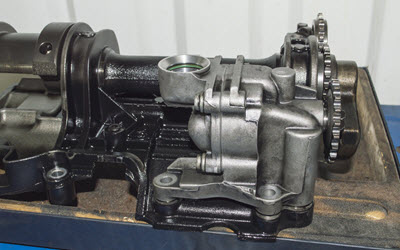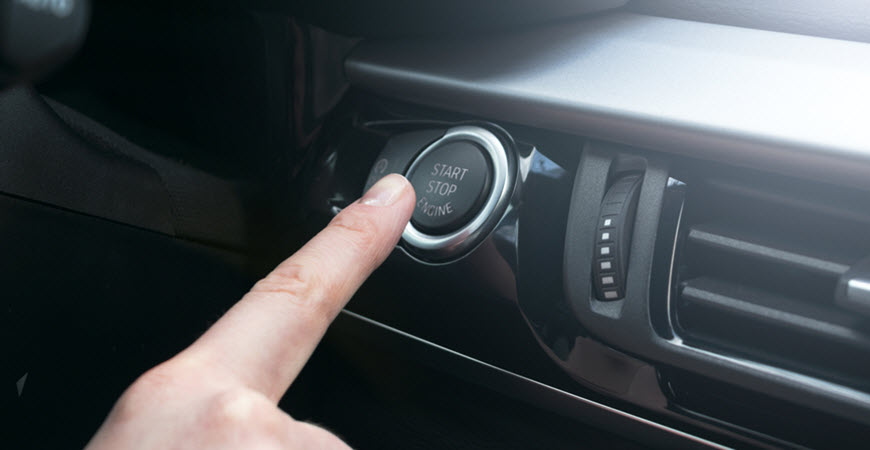A critical component of a vehicle’s engine performance is the oil pump, and its failure could result in terrible damage to your vehicle. Although most drivers never see the need to replace their oil pumps, it is vital to know that these cars will display various signs that will alert you to the fact that the pump is having a problem and may need to be replaced.
Your engine or oil light indicator on your dashboard will most likely illuminate first, alerting you to a problem. This isn’t always the case, as some drivers normally fail to notice or ignore the light. When the oil light comes on, it usually means that the engine is overheating. Bear in mind that this isn’t necessarily an indicator that your oil pump is malfunctioning; there could be a leak or your engine could be burning oil.
Signs of a Failing Oil Pump
Let’s look at other signs you need to watch out for to know the perfect condition of your oil pump.
- Surges Or Sputtering Of The Engine: The oil pump could be defective if you’re driving your car and the engine instantaneously begins to splutter. The engine’s performance dips and sputters if the pump of the oil can’t provide a continuous supply of oil to it. When the engine isn’t getting the correct quantity of oil due to a faulty oil pump, you may notice the car surging.
- Having Problems Starting the Car: While there are a variety of reasons why your automobile won’t start, a broken oil pump can be one of them. If the car’s engine turns over whenever the key is turned but doesn’t seem to start, the oil pump may not be able to feed oil into the car’s engine. If you keep on trying to start the car when it does not have enough oil, the battery will be drained and the car’s starting system will be overworked, resulting in auto repairs.
- There is Stalling at High Temperatures: When your car’s engine stalls, it’s usually due to a failing oil pump, especially if the temperature gauge on the dashboard rises. If the engine isn’t getting enough oil from the tank, it will overheat. When the engine doesn’t get enough oil from the oil pump, it needs to work harder to maintain running properly. The more work the engine needs to do, the hotter it gets, and it may stall to avoid overheating. Allowing your car to run out of oil, buying oil from a reliable station, and having the oil pimp inspected regularly are all ways to keep your oil pump in good operating order.
- Power Loss: If you’re towing a truck or trailer for hauling a big load and your vehicle starts to drag, it’s possible that the oil pump is to blame. A failed oil pump can’t sufficiently keep the oil pressurized or provide enough oil to keep up with the high-level demand for oil that the vehicle requires under stressful conditions when the load on the vehicle is raised.
- The Oil Tank Makes A Whining Noise: The oil pump is likely to fail if you hear a whining noise coming from the position of your oil tank. If you hear whining, the oil pump may be broken, you’re out of oil, or there are pollutants in the tank.
- Reduction in Gas Mileage: Consider a malfunctioning or failing relief valve inside the pump of your fuel if you suddenly find yourself filling up your petrol tank more than normal. Excess gasoline may flow into the car engine’s system if the valve does not open when it is needed. Unfortunately, excess gasoline or fuel cannot be stored or used within the engine, so it simply burns up unnecessarily, lowering gas mileage.
Let Us Fix Your Oil Pump
Your BMW’s oil pump transports oil from the oil  tank to the engine, allowing it to function smoothly. Keep in mind that if the pump overheats, is broken, or fails, your BMW’s engine will not be able to get the oil to run correctly or at all.
tank to the engine, allowing it to function smoothly. Keep in mind that if the pump overheats, is broken, or fails, your BMW’s engine will not be able to get the oil to run correctly or at all.
Consider bringing your BMW to our auto shop to have the oil pump replaced if you observe these indicators. At DART auto, we proudly help clients in Englewood, Littleton, Centennial, Denver, CO, and our top priority is to get your vehicle rightly fixed the first time you visit us. Contact us today if you need to replace your failing oil pump in your BMW.
